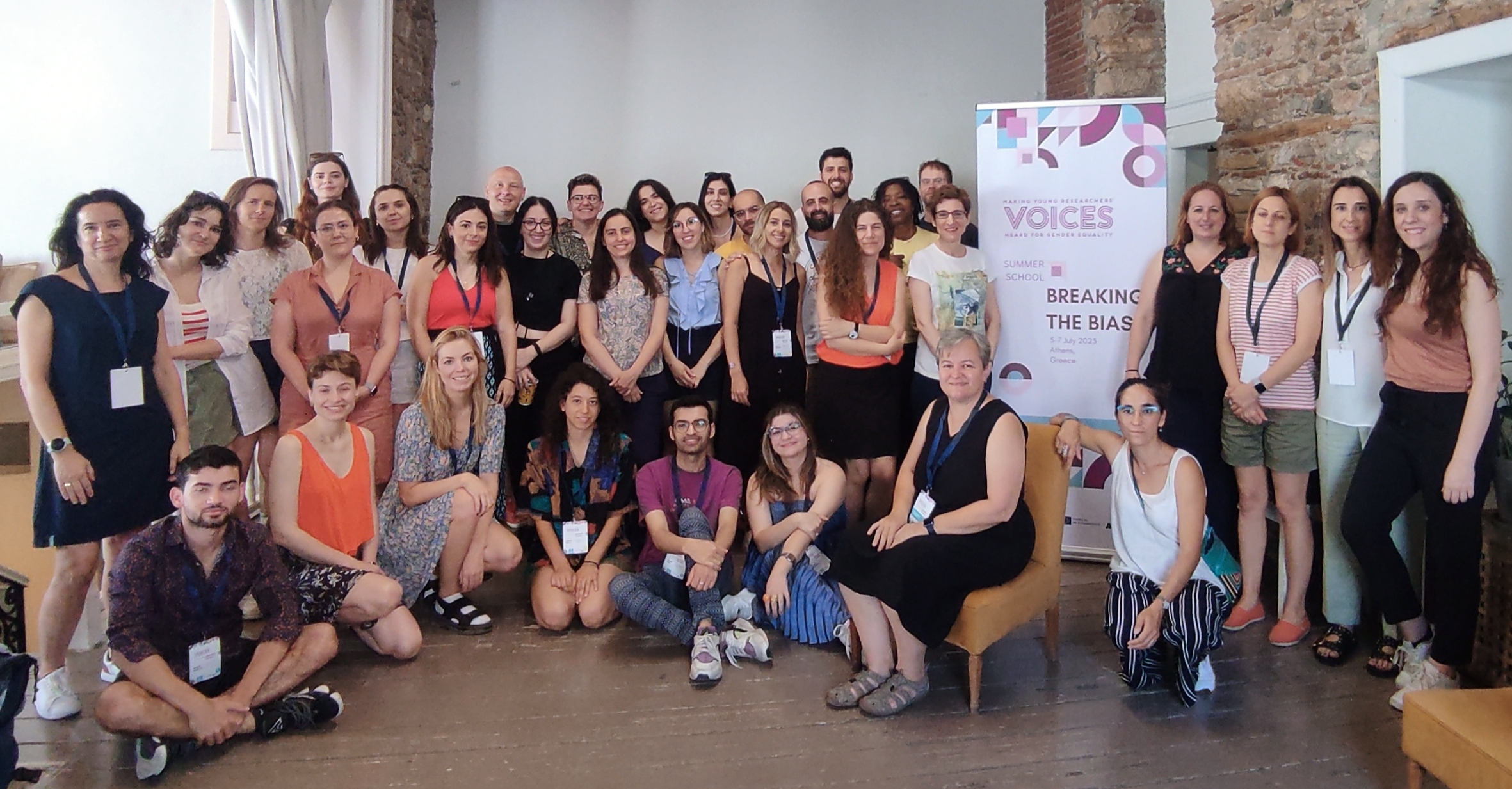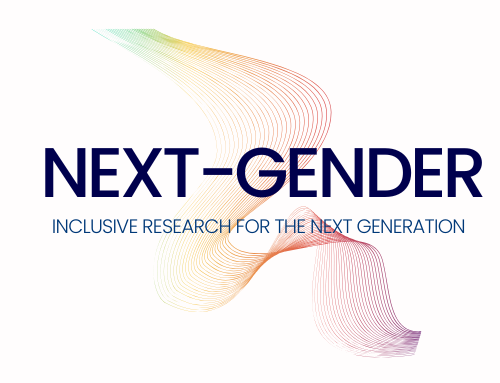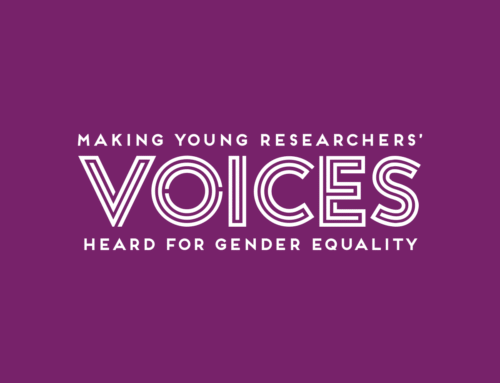The 2023 summer school achieved its goal of breaking down gender bias in the research work of its participants. The summer school “Breaking the Bias”, organized by Working Group 3 Gender as a Research Dimension, held in July 2023 at the Impact Hub space in Athens fulfilled its objective of promoting relationships between young researchers and mentors, receiving useful feedback to improve the work presented, and sharing concerns during those 3 days.
The first day featured a conference entitled “Unraveling gender-bias in R&I” by WG3 leaders Anita Thaler and Clemens Striebing in which they introduced the concept of gender bias and stereotypes, and showed how, by putting on gender glasses, we are addressing many more dimensions than just sex.
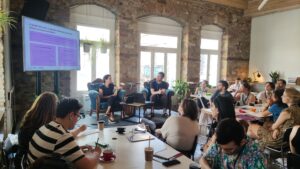
During the three days, three working groups called “streams” were formed to work specifically on the topics of the Summer School. In stream 1 on Health and Biotechnology, moderated by Jelena Grahovac, Margarita Zachariou, and Victoria Showunmi, they showed the importance of using the terms sex and gender correctly in biomedical research. In stream 2 on Digital Technologies, moderated by Katerina Pastra, Vivian Stamou, and Gul Kurtoglu Eskisar, where the use of biased AI algorithms by companies and public services and in the era of AI chat was addressed. Finally, stream 3 on Climate, Biodiversity, and Mobility moderated by Ghadir Pourhashem, Clemens Striebing, and Anita Thaler presented issues such as gender and the value of time and their relevance for inclusive and equitable mobility planning.
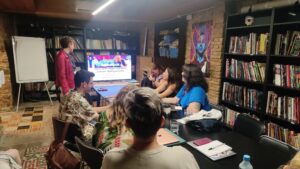
The Summer School featured 3 guest speakers who are leaders in the field. On the first day, Professor Londa Schiebinger, a pioneer in gender mainstreaming in R&D, joined us with a talk on “Epic failures of gender-biased products and technologies and what they teach us”. The second day was Elizabeth Pollitzer’s inspiring talk on “General and novel methods for analysing the interrelationships between gender equality and other sustainable development goals”. Finally, young researcher Jenny Carla Moran gave her talk on “Love, Humanity and the Future in the age of the sex robot” in which she talked about robots as archives of cultural ideas built on human kindness.
The second day also featured the plenary session “How an intersectional lens enriches our research” led by Victoria Showunmi, with Anne Sophie Godfroy, Jelena Grahovac, Katerina Pastra, and Clemens Striebing taking part in the discussion. During the debate, Anne Sophie Godfroy pointed out that the important thing is what our research contributes to society. Jelena Grahovac pointed out that there is a need for diversity in research teams, but also a need to train researchers (including privileged ones) to work systematically with an intersectional lens. For his part, Clemens Striebing pointed out that a key issue about applying intersectionality in quantitative research is that intersectionality is not the same as analysing effects at the intersection of statistical variables. Intersectionality requires context. Katerina Pastra said that working with AI and the possibilities of cognitive robotics has helped them to understand their own biases and how we unconsciously base our assumptions on our prior knowledge.
A very fruitful three days in which participants were able to improve their posters and implement the knowledge on gender mainstreaming and intersectionality in their own research.
